Are you considering diving into the world of open access publishing? This new approach allows researchers to share their findings with a wider audience, promoting transparency and collaboration in science. By choosing an open access route, you not only enhance the visibility of your work but also align yourself with the growing movement towards accessible knowledge. If you're curious about how to craft an effective open access publishing agreement, read on for essential tips and templates!
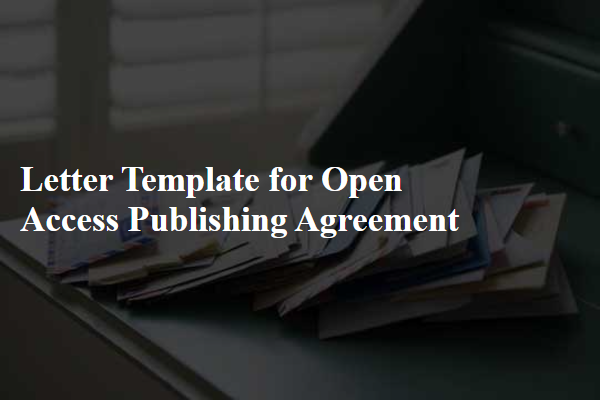
Author Rights and Retention
An open access publishing agreement allows authors to retain specific rights over their work while ensuring that the material is freely accessible. Authors often maintain the right to reuse their work in future publications (including adaptations) while granting the publisher rights to distribute the work under a Creative Commons license. The agreement typically outlines the conditions under which the content may be shared and used, as well as any obligations regarding attribution, copyright, and potential restrictions on commercial use. Key elements may include information on licensing options such as CC BY, CC BY-NC, and CC BY-SA, which govern how others can share and adapt the work. Authors may also discuss self-archiving rights, allowing them to store their articles in institutional repositories or personal websites while complying with the publisher's policies. Familiarity with these rights and restrictions is essential for authors to protect their intellectual property while contributing to the open access movement.
Licensing and Copyright Terms
The open access publishing agreement governs the terms of licensing and copyright for scholarly articles published in reputable journals, promoting broader dissemination of research findings. Authors retain copyright while granting publishers a license for distribution, ensuring compliance with specified terms. The agreement typically outlines the Creative Commons licenses available, such as CC BY, which allows others to share and adapt the work with proper attribution. Additionally, the document may detail the responsibilities of the author regarding permissions for third-party content, as well as obligations regarding funding agency mandates for public access, often aligned with institutions such as the National Institutes of Health (NIH). Compliance with these licensing terms enhances visibility and accessibility of research, fostering collaboration within the global academic community.
Open Access Publishing Fee
Open access publishing fees represent a financial obligation required by many academic journals to allow unrestricted online access to research articles. This fee, which varies by journal and may range from several hundred to several thousand dollars, enables authors to disseminate their work widely, increasing visibility and citation potential. Institutions and funding bodies often cover these fees, which support the review and publication processes. By opting for open access, authors contribute to the global knowledge base, fostering collaboration across disciplines and enhancing the impact of their research. This agreement typically includes details regarding the publication timeline, licensing options, and rights management, ensuring authors retain certain rights over their work while complying with the journal's policies.
Manuscript Preparation and Submission Guidelines
Creating an open access publishing agreement requires careful attention to guidelines and standards for manuscript preparation and submission. Attention to detail in formatting, referencing styles, figure resolutions, and ethical compliance ensures that your work meets journal requirements. Guidelines often specify document formats, typically Word or LaTeX, and outline limitations on manuscript length, usually between 3,000 to 5,000 words. Authors must ensure all figures and images adhere to resolution standards (generally 300 DPI for images) and properly cite all sources to avoid plagiarism. Additionally, authors should consider the Creative Commons licensing options available for their work, such as CC BY or CC BY-NC. It's crucial to include clear author contributions and any potential conflicts of interest, which can impact the publishing process. Journal-specific submission portals, such as Editorial Manager or ScholarOne, facilitate efficient manuscript tracking and communication. Following these comprehensive guidelines enhances the likelihood of successful publication in high-impact open access journals.
Institutional and Funder Policy Compliance
Open access publishing agreements facilitate compliance with institutional policies, such as those set forth by universities or research institutions, and funder requirements, established by organizations like the National Institutes of Health (NIH) or the Wellcome Trust. These agreements ensure that articles become freely accessible to the public (typically under Creative Commons licenses) within a specified timeframe, often 6 to 12 months post-publication depending on the journal's policy. Compliance may also involve adhering to specific metadata requirements for repositories, ensuring the proper citation of funding sources, and potentially involving article processing charges (APCs) paid upfront or through institutional agreements. Furthermore, it is vital to consider the compatibility of these agreements with prevailing academic norms, legislative requirements such as the Plan S initiative in Europe, and the evolving landscape of open science practices.
Letter Template For Open Access Publishing Agreement Samples
Letter template of open access publishing license agreement for institutions.
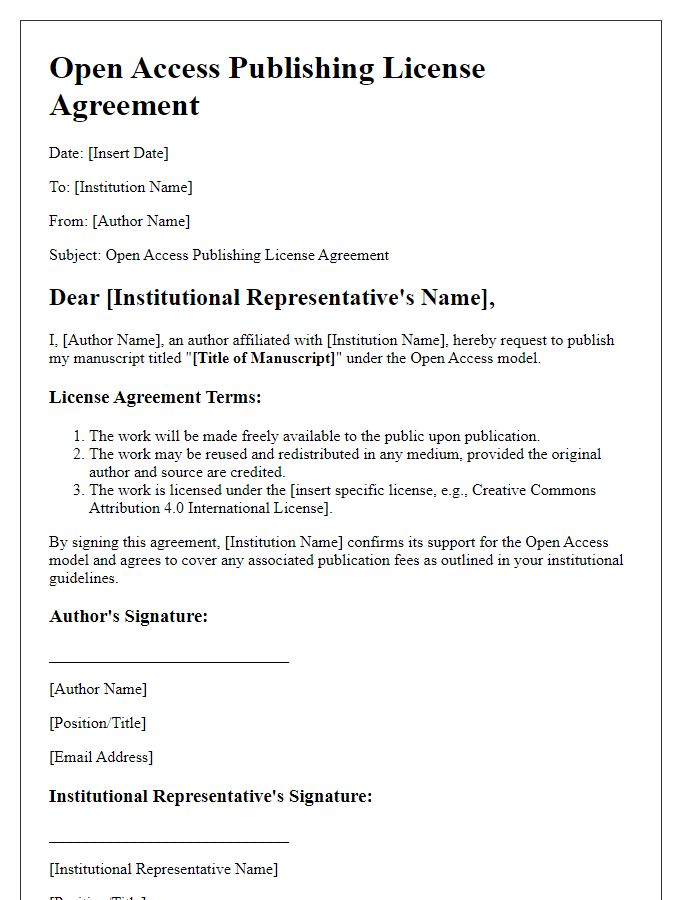
Letter template of open access publishing submission guidelines for contributors.
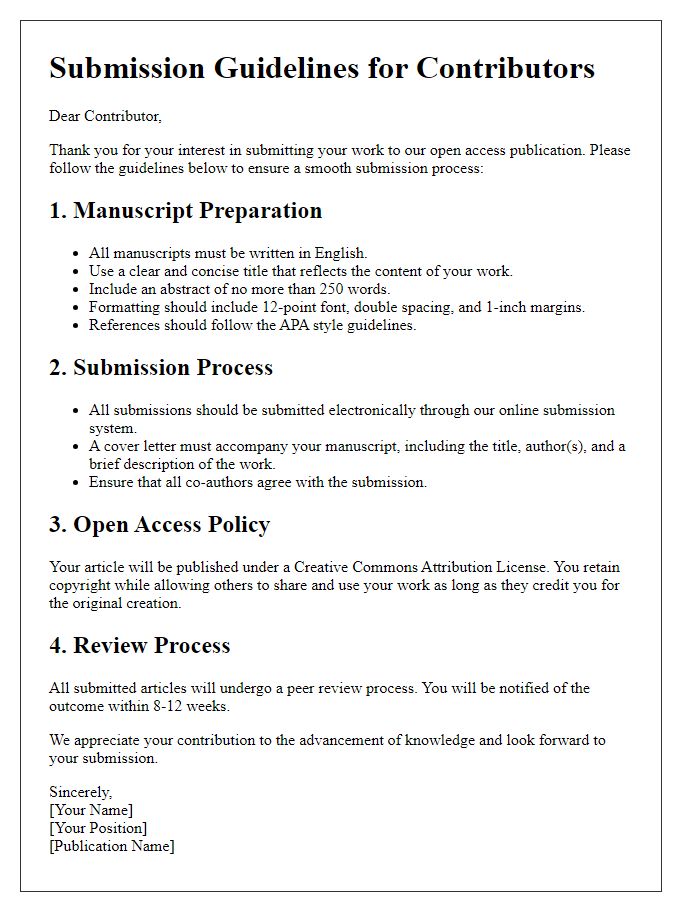
Letter template of open access publishing partnership arrangement for journals.
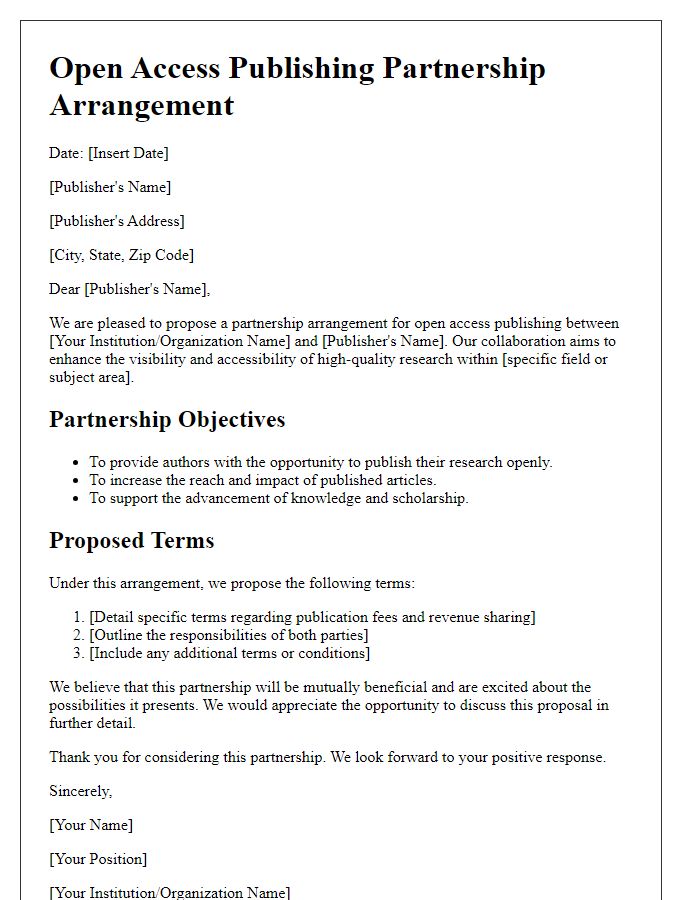
Letter template of open access publishing fee waiver request for researchers.
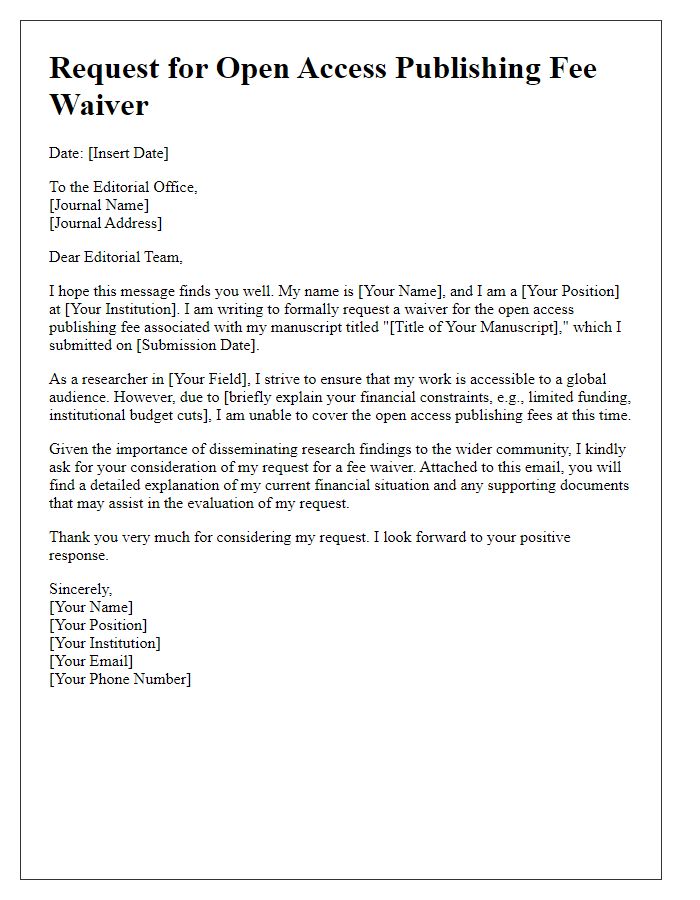
Letter template of open access publishing copyright transfer for authors.
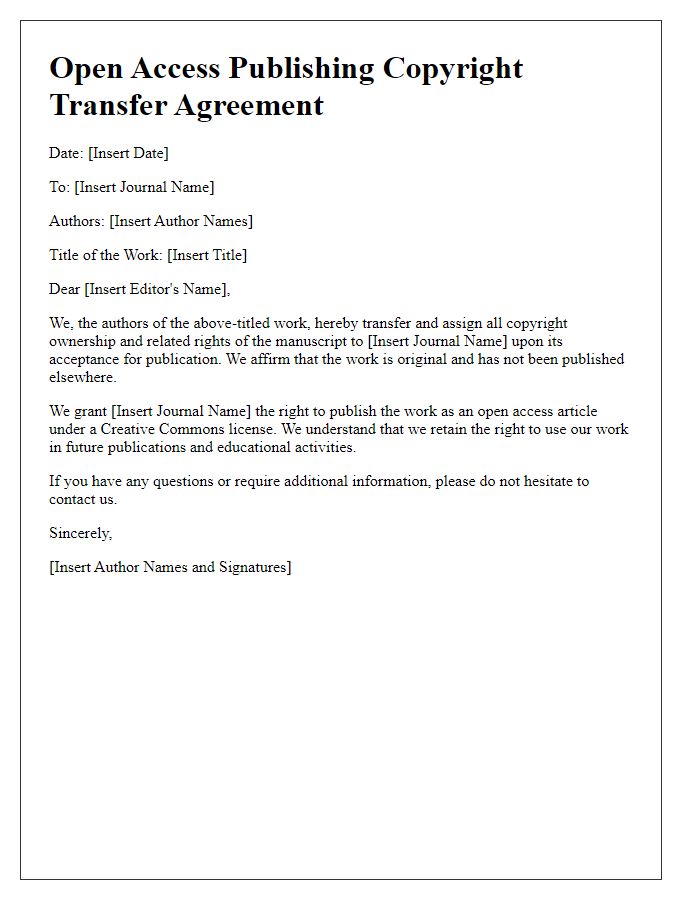
Letter template of open access publishing funding acknowledgment for grants.
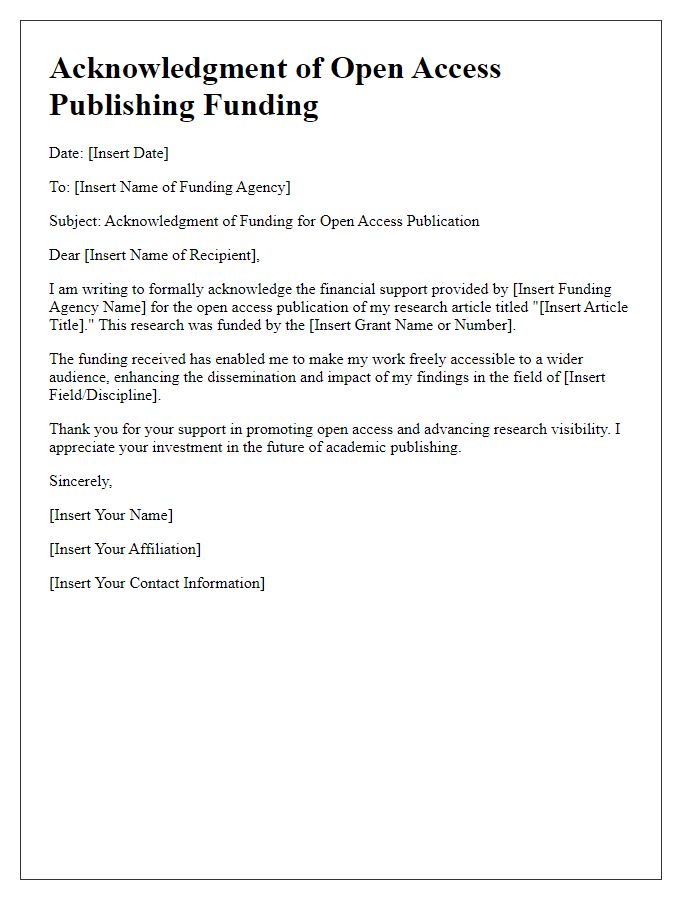
Letter template of open access publishing contribution agreement for co-authors.
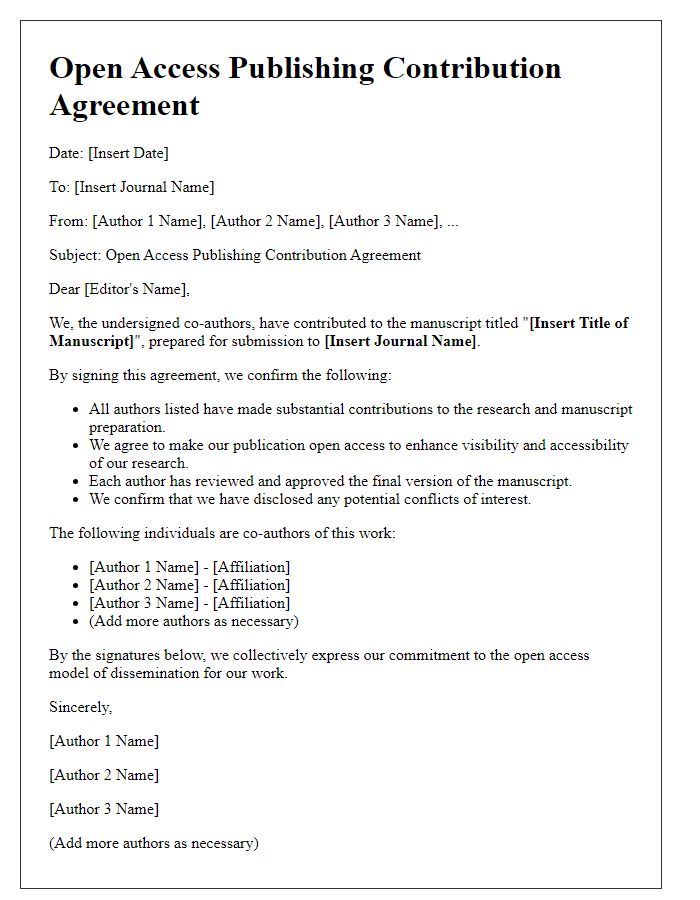

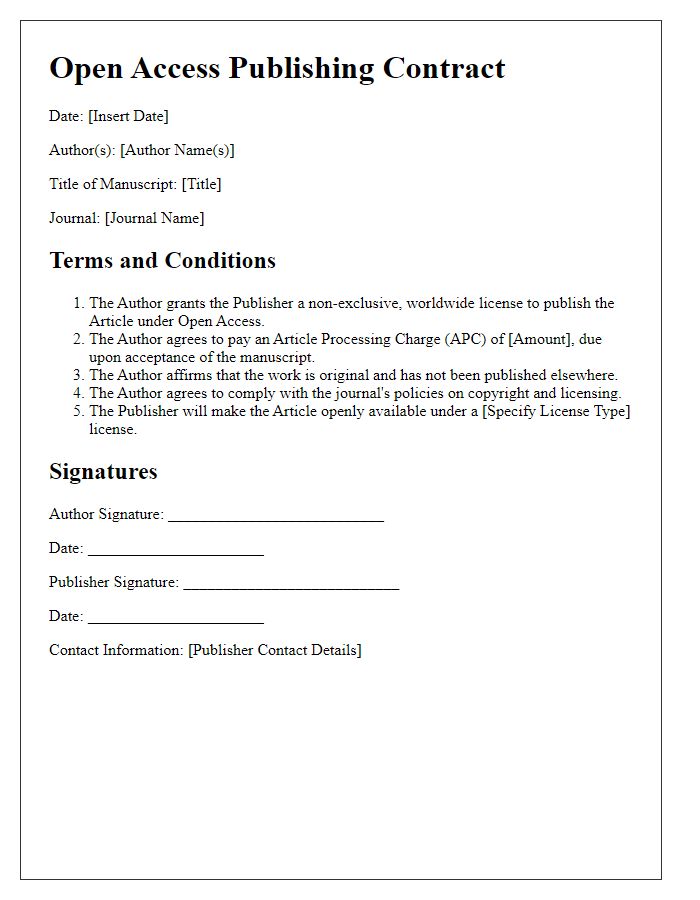
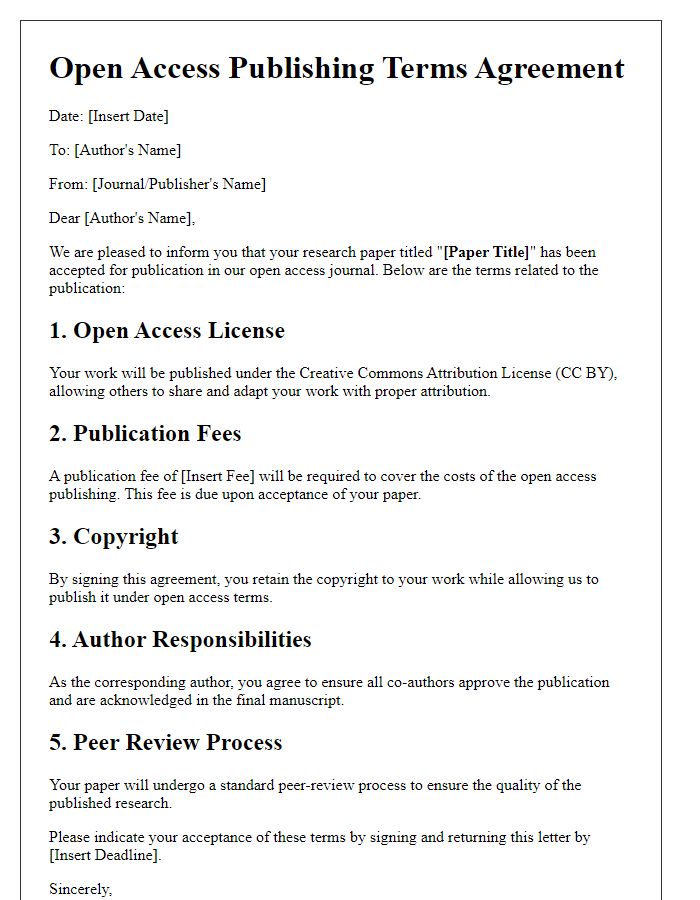
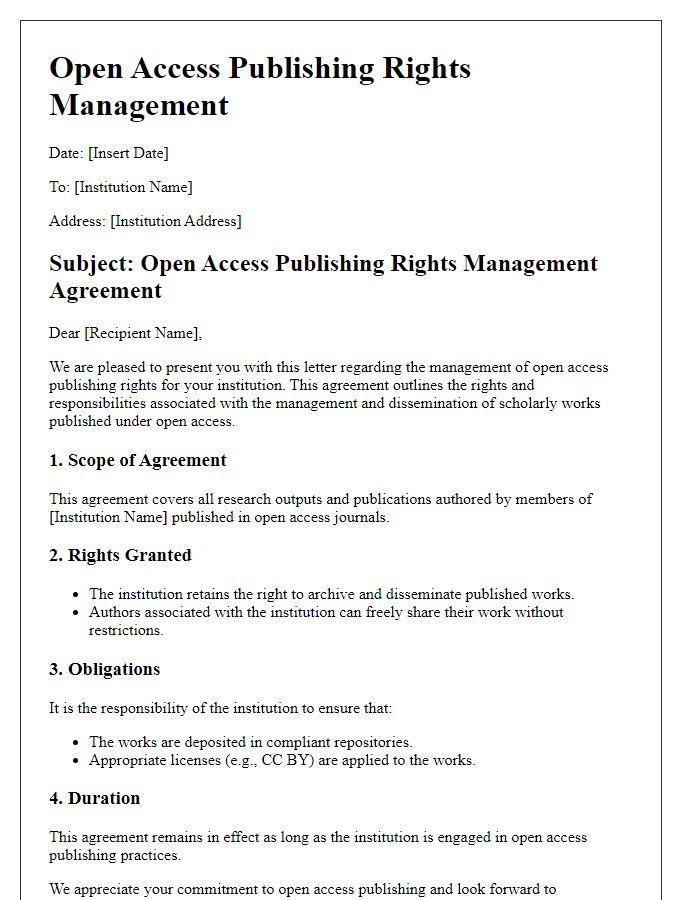

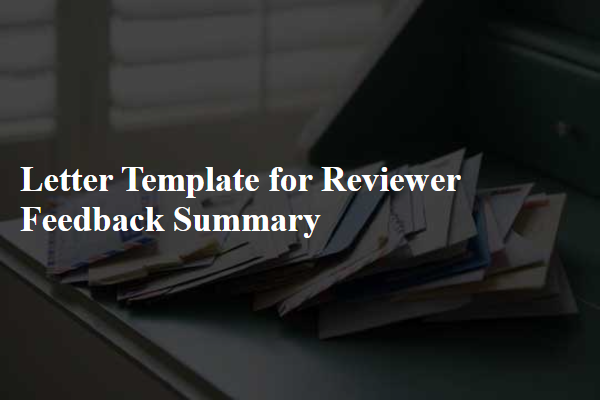
Comments